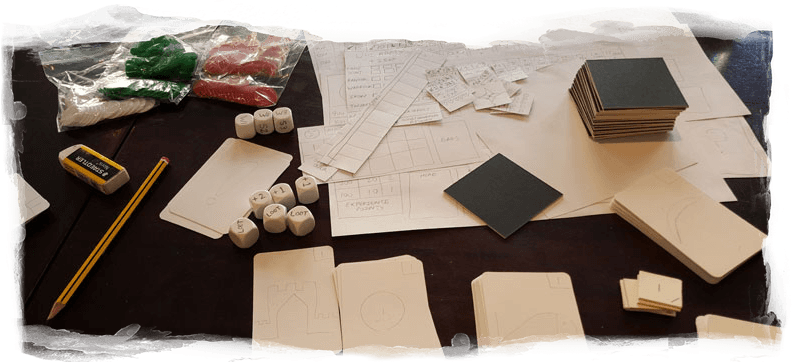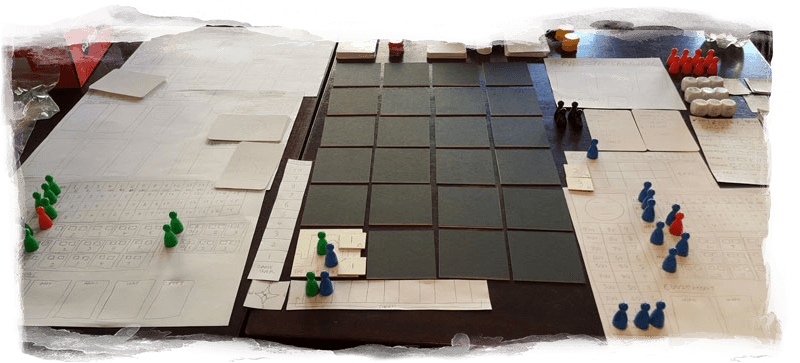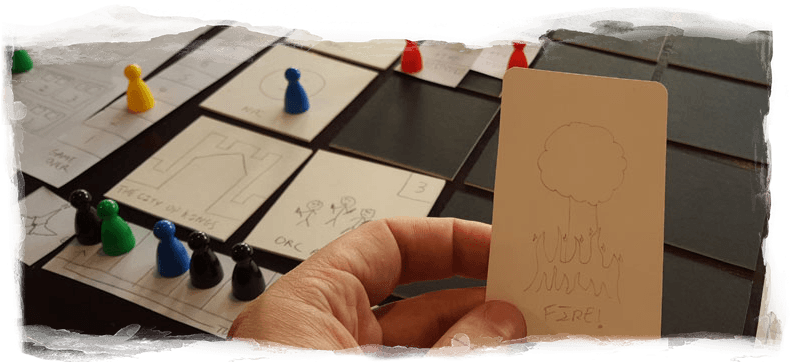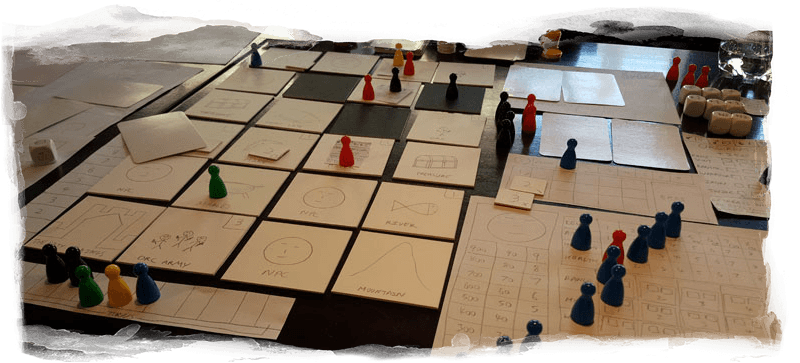The prototype becomes a game
Last week I talked about prototype development for The City of Kings and covered our first rounds of playtesting. Talking about how important it was to playtest as early as possible.
What I didn’t really describe was what we learned from the playtests, so I wanted to cover that today.
THE FIRST TESTS
It is a strange thing testing a game for the very first time, I’m sure everyone has their own approach but for me it really is just concept validation. I want to understand whether the basic mechanics make sense, offer something worth developing and seem like fun.
As expected, the first tests weren’t overly successful, things seemed very broken and we were normally resetting the board every 10 minutes. It was painful to see months of hard work falling over after just a few turns but it was a valuable experience.
I think many people give up too early worrying their idea wasn’t everything they thought it was going to be, I urge you to keep going.

EVALUATING THE RESULTS
I spent the next week evaluating the results, what didn’t work? what did work? And I made adjustments accordingly.
WORKER PLACEMENT
One of the key areas which seemed to work was worker placement, you chose your locations and gathered your resources – Perfect! But it also didn’t add anything to the game… An early game decision that just sat there, allowing you to gain +1 resource every turn.
So one of the big changes I made was making the process more involved, you now control each worker like a secondary character and they have their own limited resource storage. It is your responsibility to move them around the board, gather resources and manage them accordingly. This instantly increased the level of interactions in the game and made things a lot more exciting.
Furthermore, it greatly increased the team experience by making players discuss who should move resources from location to location and the most efficient ways to gather.
CHARACTER STATS
Big numbers may seem like fun but they also cause problems, our characters were getting too strong. Items needed to be seen as beneficial and the early prototypes made them just that, offering huge bonuses. This seemed like a good solution but it made balancing the strength of enemies almost impossible, a single item changed them from super challenging to easy.
This led to a complete rewrite of the stats system, making characters gain 1 or 2 points rather than 4 or 5. By reducing the numbers we found that enemy balance was much easier but also it had another consequence – We found ourselves putting more value on every point we gained.

SETTING THE GOAL
The final big lesson from the first tests was the concept of setting a goal. The original game idea was to have an end goal set at the start, allowing players to get there however they wanted. This seemed like a great idea offering total freedom and increasing replayability.
The actual consequence was a feeling of being lost, people got bored and didn’t really know what to aim for. The solution? Changing our city quests from optional side missions to required challenges which offer increasingly difficult tasks, each working towards the final end goal.

THE NEXT PLAYTESTS
With the results analysed and changes made it was time to try again, so on Sunday we sat down for a quick session to see how things played out. This is when something strange happened, we found ourselves discussing tactics, planning moves and in a constant battle to survive. We kept gaining and losing, pushing for victory but eventually we lost.
Much to our surprise over 2 hours had gone by and at some point, the prototype had become a game. Don’t get me wrong, there were still plenty of problems which need to be addressed but it is starting to feel like the core mechanics are in place and working.
Interestingly, even though we lost and the game was incredibly hard we found ourselves discussing the mistakes we had made. There were obvious moves we should have done and these all resulted in us losing. To me this is the most successful part, we’ve created the basis for a game which is challenging but seems to be beatable – Exactly what I had hoped to achieve.

Frank West
Frank West is a gamer and designer based in Bristol, UK. He published his first board game, The City of Kings, in 2018 and now works on other games and organising events in the local area. His goal? To design and publish games focusing on immersive themes, fun mechanics and beautiful components. If you have any questions or would just like a chat, feel free to get in touch at any time!

